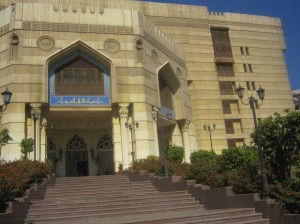
(DNE Photo)
Al-Azhar scholars have asserted that any practice proven by science to have health damages should be prohibited, said Dar Al-Ifta official Mohamed Wessam Khedr.
At a meeting held in Cairo for the National Day to Fight Female Genital Mutilation (FGM) last Thursday, Khedr said FGM is not a religious duty, but rather a matter of medical heritage and customs.
He added that the latest medical research and scientific facts indicate that although circumcising males has benefits, circumcising females causes both physical and psychological harm.
“It is practiced in a harmful way that makes us say that it is forbidden in Islam,” he said.
Article 242 of the Penal Code states that committing FGM is a crime punishable by imprisonment from three months to two years, or a fine of at least EGP 5,000.
Some, however, still believe that there is flexibility around this law. Khaled Al-Masry, a lawyer and member of the political bureau of the Salafi Front, stated from the religious perspective, if the girl will not be harmed and her parents give consent, then the surgery can be carried out. He added the doctor should decide if a girl needs the procedure, and if she would be harmed by it, saying that 100s of surgeries are carried out every day. He also noted that doctors can be punished if there is a complication in a case
Egypt has designated 14 June as the day to fight FGM after a girl called Bodour died in 2007 as a result of undergoing the surgery.
Traditionally, families subjected their daughters to the surgery believing that it would curb their sexual desire. Khedr cited recent scientific research which stated that there is no relationship between FGM and chastity.
The meeting was attended by health ministry representatives, Al-Azhar representatives, UNICEF, and children’s rights groups like the Egyptian Coalition for Children’s Rights (ECCR). They met under the banner of “We are all responsible… No to FGM.”
Earlier this month, 13 year old Soheir Al-Batae died after undergoing the surgery in a private clinic in Daqahleya. After her death, ECCR said the government turns a blind eye when it comes to the surgery in villages and in Upper Egypt.

